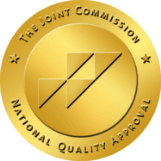Summary
- Addiction is more than a choice.
- Medical approval doesn’t make them safe from misuse.
- Reaching “rock bottom” isn’t the end of the world.
- Treatment is ongoing.
- Relapse is not a sign of failure.
Navigating the maze of addiction is a complex task, made even more difficult by a society often misinformed about its true nature. You may have heard these myths about addiction yourself, misconceptions that are not only damaging but often prevent people from seeking help. From the myth that addiction is merely a choice to the dangerous notion that hitting rock bottom is a prerequisite for recovery, these falsehoods need to be dismantled. Let’s start by addressing one of the most damaging myths about addiction, the idea that it’s merely a matter of choice.
1. Addiction Is More Than a Choice
Initially, the use of a substance might indeed be a conscious decision. However, the journey from occasional use to dependency is often a complex interplay of genetics, environment, and mental health conditions. Saying addiction is a choice simplifies a complicated issue and heaps of unfair blame on individuals, often making the road to recovery even rockier.
2. The Prescription Misconception
You’ve been prescribed medication by a doctor, so it must be safe, right? Wrong. Prescription medications like opioids and benzodiazepines are among the most addictive substances out there. This myth is especially dangerous because it promotes misuse under the guise of medical legitimacy, undermining effective treatment and complicating matters of dependency.
3. The Rock Bottom Fallacy
The concept that someone needs to reach their lowest point to engage in meaningful recovery is both misleading and risky. Waiting for a “rock bottom” moment could expose individuals to unnecessary physical and psychological risks, including life-threatening circumstances. Timely intervention and a supportive environment can mean the difference between life and death.
4. One and Done: The Rehab Myth
Rehabilitation centers are not magical places where addiction is cured instantaneously. The treatment process requires ongoing efforts, lifestyle changes, and sometimes medication. The belief that one stint in rehab provides a lifelong cure can lead to disillusionment and lower the chances of long-term recovery.
5. Relapse: A Step Back or a Step Forward?
Contrary to popular belief, relapse does not signify treatment failure. In fact, it’s often part and parcel of the long, non-linear road to recovery. Instead of viewing a relapse as a dead-end, consider it a detour—a sign that some recalibration in your treatment plan might be needed.
Understanding and dispelling these myths about addiction is a step toward breaking the cycle of addiction and moving toward effective treatment. If you or a loved one is grappling with addiction, don’t let these myths cloud your judgment. Willpower Recovery Center is here to guide you through evidence-based treatment plans tailored to your unique needs. For more information, or to start your recovery journey, call us today at 866-396-2745.






